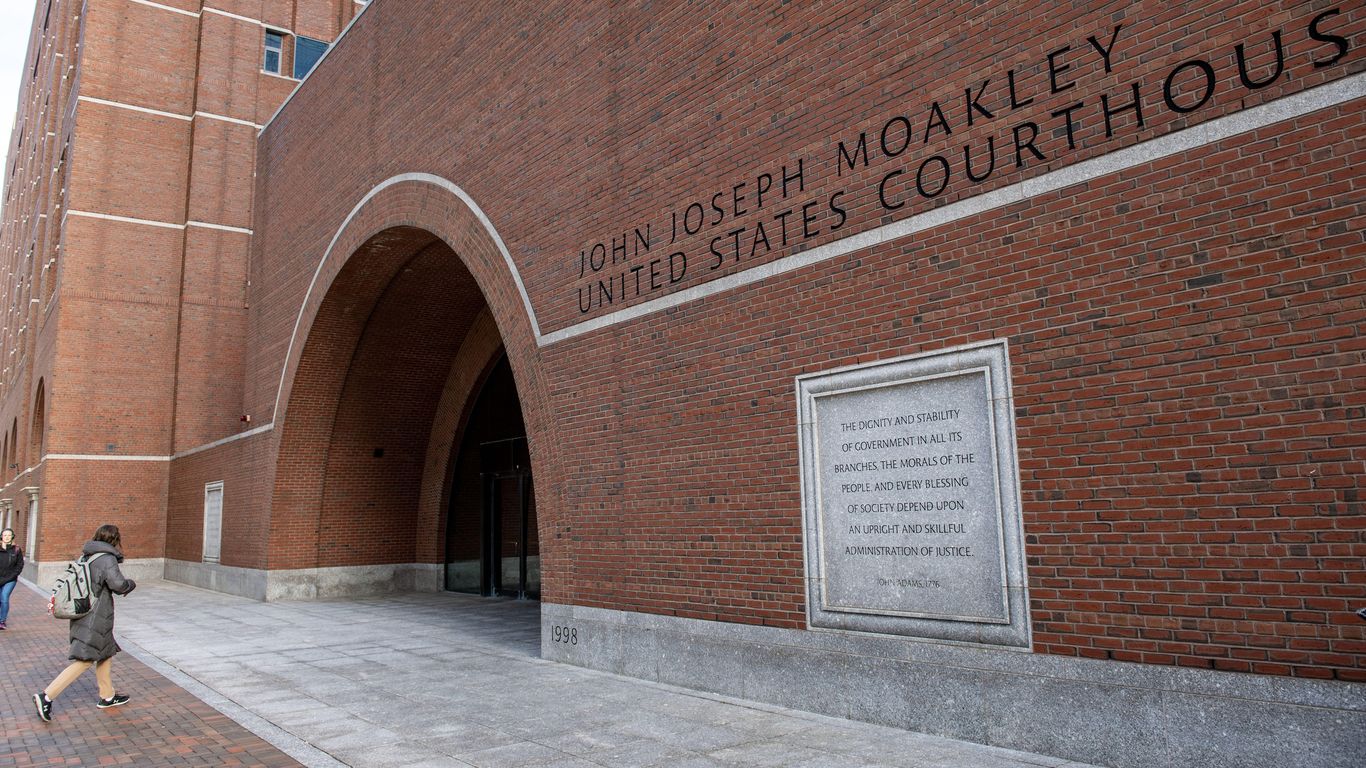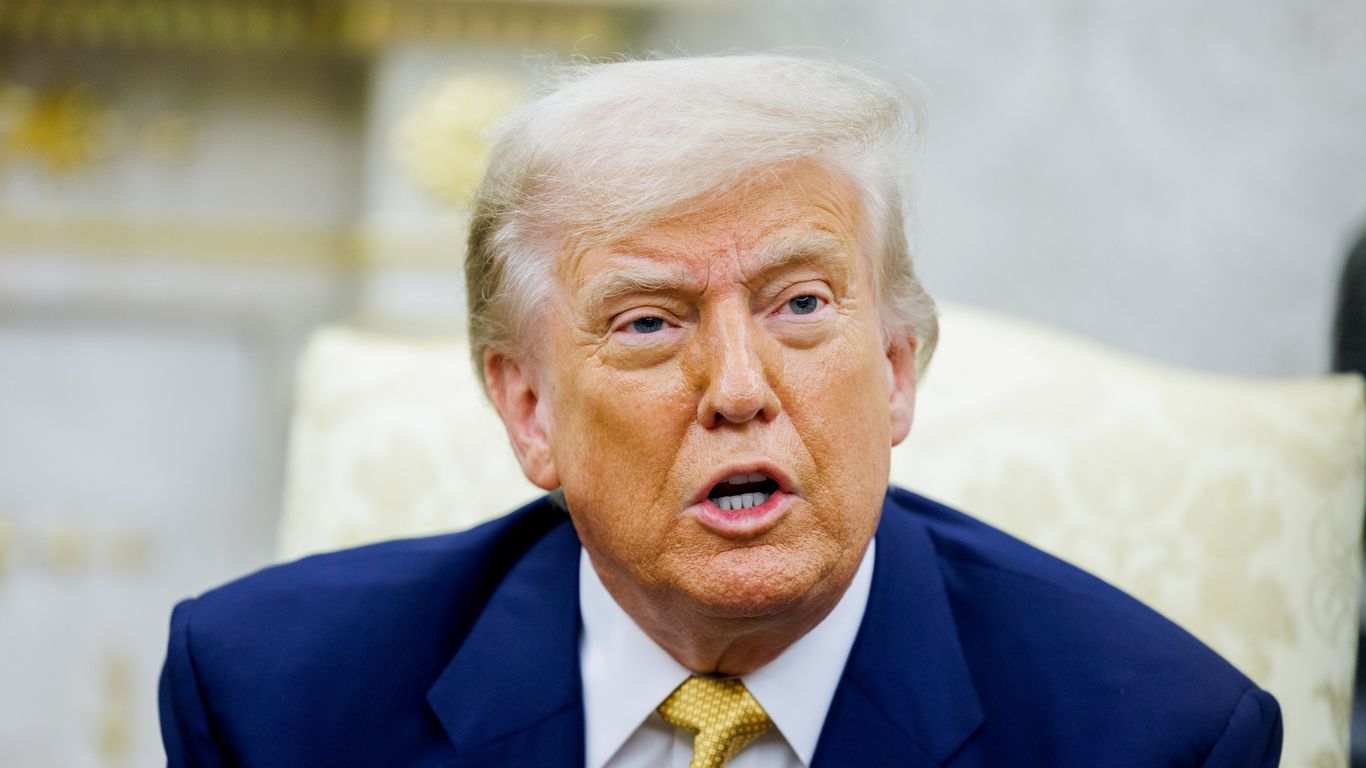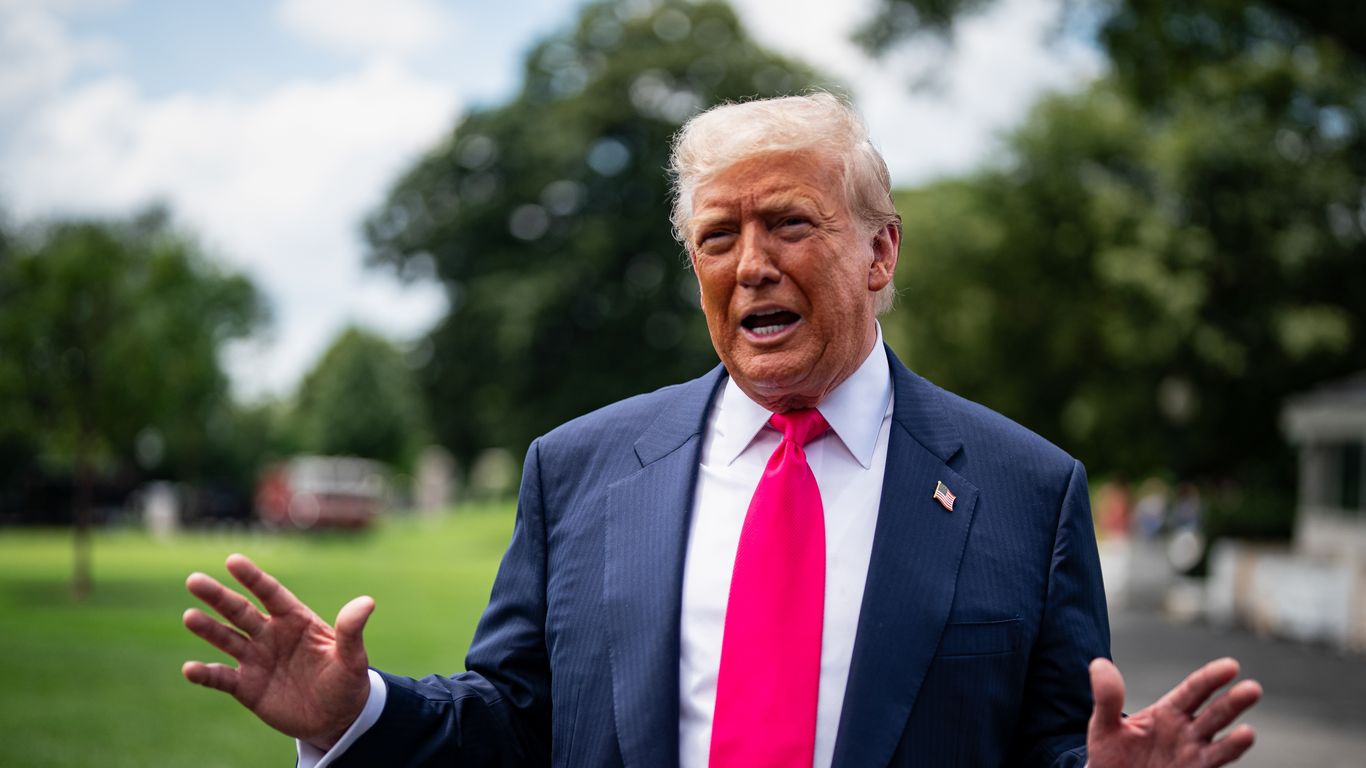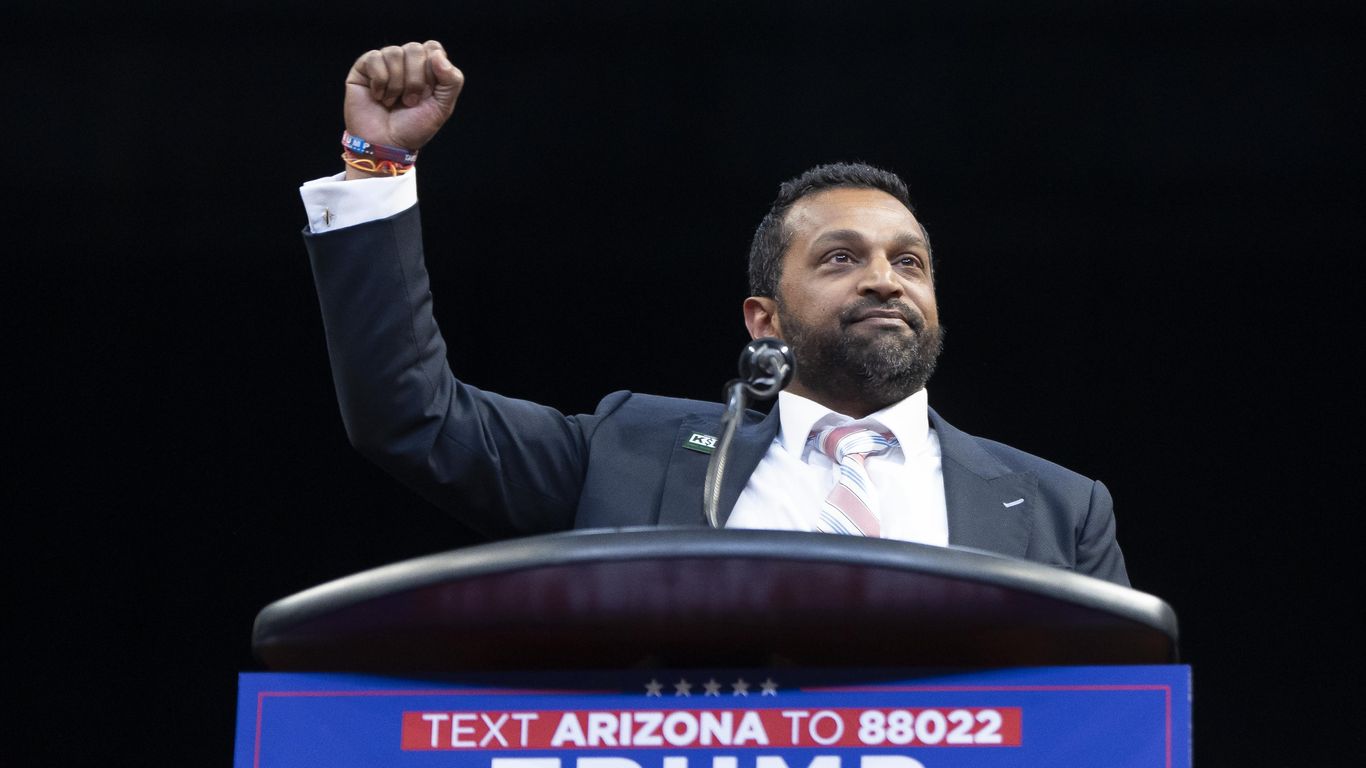DOJ Launches Investigation into NY Attorney General's Office
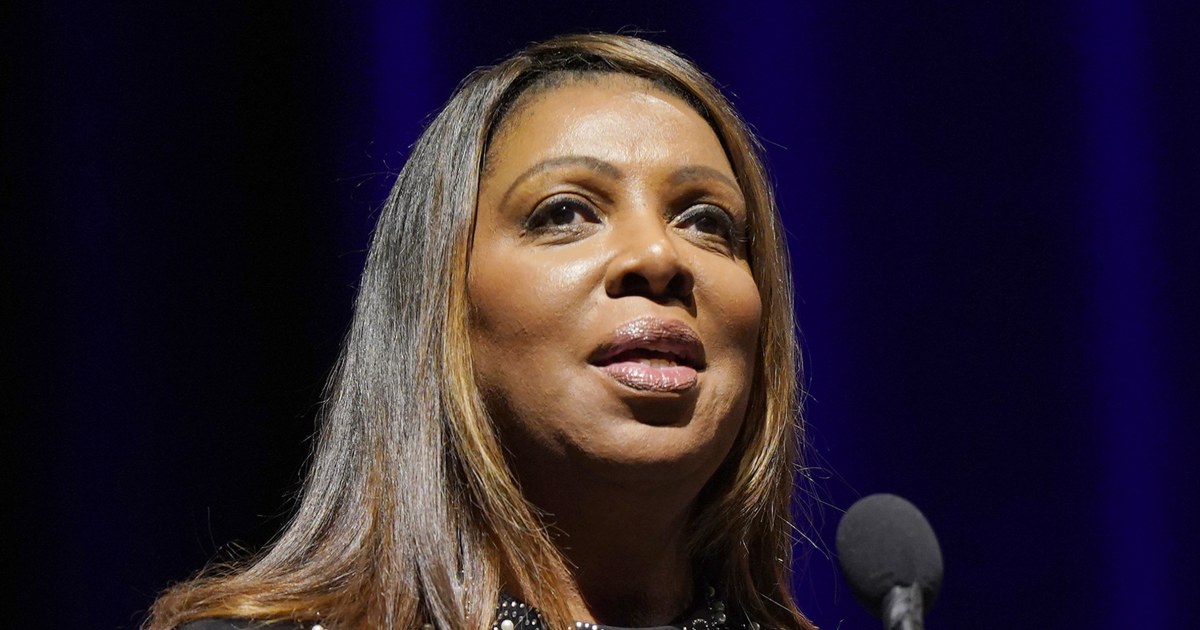
Introduction
The Department of Justice (DOJ) has recently launched an investigation into the New York Attorney General's office, led by Letitia James. The investigation comes after the office brought a civil fraud case against President Donald Trump.
Key Details
The investigation is still in its early stages, and the DOJ has not yet released any specific details about the focus or scope of the case. However, this development adds another layer to the ongoing legal battles between the Trump administration and the state of New York. The civil fraud case, brought by the attorney general's office, alleges that the Trump Organization inflated its assets in order to secure loans and tax benefits.
The investigation by the DOJ could potentially have significant consequences for both the Trump Organization and the attorney general's office. It could also have political implications, as the Trump administration has repeatedly criticized New York officials for their investigations into the president's business dealings.
Impact
This investigation highlights the ongoing tension between the federal government and state authorities, particularly when it comes to investigations into the Trump administration. It also raises questions about the independence and impartiality of the DOJ, as the investigation was launched under the direction of Attorney General William Barr, who has been accused of politicizing the department.
The outcome of this investigation could have far-reaching consequences, not just for the Trump Organization and the attorney general's office
About the People Mentioned
Letitia James
Letitia James is the 67th Attorney General of New York State, serving since 2019. She is the first woman and the first woman of color elected to this statewide office in New York. A native of Brooklyn, James earned her undergraduate degree from Lehman College and her law degree from Howard University School of Law. Prior to becoming Attorney General, she served as New York City’s Public Advocate from 2013 to 2019, where she was also the first woman of color to hold citywide office. In that role, she transformed the office into a powerful force for legislative change, addressing issues such as the gender wage gap by banning salary history questions in hiring and advocating for vulnerable populations including children in foster care and tenants[2][4]. As Attorney General, James acts as the chief legal officer of the state, focusing on protecting New Yorkers through law enforcement and civil rights advocacy. Notably, she secured a $7.4 billion settlement from Purdue Pharma and the Sackler family for their role in the opioid crisis, with New York receiving up to $250 million to fund treatment and prevention programs. Her office has also recovered over $3 billion from opioid manufacturers and distributors to combat the epidemic. James leads efforts to hold corporations accountable, exemplified by forcing DoorDash to pay $16.75 million to workers after unfair tip practices were exposed. She is also active in legislative initiatives such as the FAIR Business Practices Act, aimed at protecting consumers and small businesses from abusive practices[1][6]. James remains a prominent figure in New York politics and law enforcement, known for her advocacy on public safety, civil rights, and corporate accountability, continuing to address major social and legal challenges affecting New Yorkers.
Donald Trump
Donald John Trump, born June 14, 1946, in Queens, New York, is an American businessman, media personality, and politician. He graduated from the University of Pennsylvania’s Wharton School in 1968 with a degree in economics. In 1971, he took over his family’s real estate business, renaming it the Trump Organization, through which he expanded into building and managing skyscrapers, hotels, casinos, and golf courses. Trump gained widespread fame as the host of the reality TV show *The Apprentice* from 2004 to 2015, which helped establish his public persona as a successful entrepreneur. Trump entered politics as a Republican and was elected the 45th president of the United States, serving from 2017 to 2021. His presidency was marked by significant policy actions including tax cuts, deregulation, the appointment of three Supreme Court justices, renegotiation of trade agreements (notably replacing NAFTA with the USMCA), and a focus on immigration control including border wall expansion. He withdrew the U.S. from international agreements such as the Paris Climate Accord and the Iran nuclear deal, and engaged in a trade war with China. His administration’s response to the COVID-19 pandemic was criticized for downplaying the virus’s severity. Trump was impeached twice by the House of Representatives—first in 2019 for abuse of power and obstruction, and again in 2021 for incitement of insurrection—but was acquitted by the Senate both times. After losing the 2020 election to Joe Biden, Trump challenged the results, culminating in the January 6, 2021, Capitol riot. He remains a central figure in American politics, having won the 2024 presidential election and returned as the 47th president in 2025, continuing to promote policies aimed at economic growth, border security, and military strength[1][2][3][4].
William Barr
William Pelham Barr, born May 23, 1950, in New York City, is an American lawyer and government official who served twice as U.S. Attorney General—the 77th from 1991 to 1993 under President George H.W. Bush and the 85th from 2019 to 2020 under President Donald Trump—making him the second person in U.S. history to hold the position twice.[1][2][3] Barr earned an A.B. in government from Columbia University in 1971 and an M.A. in government and J.D. from the same institution. Early in his career, he worked on the Domestic Policy Council during President Ronald Reagan's first term (1982–1983) and became a law firm partner by 1985. Joining the Justice Department in 1989, he served as Assistant Attorney General for the Office of Legal Counsel (1989–1990), Deputy Attorney General (1990–1991), and then Attorney General.[1][2][6] As Attorney General in the early 1990s, Barr advanced law enforcement priorities, including responses to the Savings & Loan crisis, the Pan Am Flight 103 bombing investigation, the Talladega prison hostage crisis resolution, and counter-terrorism during the First Gulf War. He established policies on financial institutions, civil rights, and antitrust, and authored "The Case for More Incarceration" advocating tougher criminal justice measures.[1][4][5] After government service, Barr was Executive Vice President and General Counsel at GTE (1994–2000) and Verizon (2000–2008), then advised corporations on enforcement and litigation, including as Of Counsel at Kirkland & Ellis (2009 and 2017).[1][3] Nominated by Trump in December 2018 and confirmed in February 2019, Barr's second term involved overseeing Special Counsel Robert Mueller's Russia investigation report, intervening in cases like those of Michael Flynn and Roger Stone, and addressing national security issues such as Chinese espionage via CFIUS and Team Telecom.[2][3][4][5] He resigned in December 2020. Since then, Barr has maintained a low public profile, with no major recent events noted as of early 2026.[1][4] (Word count: 298)
About the Organizations Mentioned
Department of Justice
The **United States Department of Justice (DOJ)** is a federal executive department responsible for enforcing federal laws, ensuring public safety, defending the interests of the United States, and upholding civil rights. Established in 1870 to consolidate federal legal affairs under the Attorney General, the DOJ has grown into a vast organization with over 115,000 employees and a budget exceeding $22 billion[1][4][5]. It operates through more than 40 component organizations, including prominent law enforcement agencies such as the Federal Bureau of Investigation (FBI), Drug Enforcement Administration (DEA), Bureau of Alcohol, Tobacco, Firearms and Explosives (ATF), and the U.S. Marshals Service[1][4][5]. The DOJ’s core mission is to uphold the rule of law, keep the nation safe, protect civil rights, and ensure a fair and impartial administration of justice across federal, state, local, tribal, and international levels[2][5]. It investigates and prosecutes federal crimes, including terrorism, drug trafficking, organized crime, financial fraud, and cybercrime. The FBI, as the DOJ’s principal investigative arm, leads in areas such as counterterrorism, counterintelligence, and cybercrime[6]. Additionally, the DOJ manages federal prisons and provides leadership and resources to state and local law enforcement agencies. Historically, the DOJ’s origins trace back to the Judiciary Act of 1789, which created the Attorney General's office. Its establishment as a separate department in 1870 allowed for greater coordination of federal law enforcement and legal representation of the government[2][4]. Over time, the DOJ has played a critical role in landmark civil rights enforcement, combating organized crime, and adapting to modern challenges such as cyber threats and international criminal cooperation[1][5]. Today, headquartered in Washington, D.C., with field offices nationwide and abroad, the DOJ continues to influence national security and justice policy, balancing traditional law enforcement with evolving technological and societal demands.
Trump Organization
The **Trump Organization** is a private American conglomerate primarily engaged in real estate development, hospitality, and brand licensing, owned by Donald J. Trump, the 45th U.S. President. Founded in 1923 by Trump's grandmother and father as Elizabeth Trump & Son, it began as an apartment construction and rental business in New York City. Donald Trump took control in 1971, rebranding it as the Trump Organization and expanding its portfolio significantly into luxury hotels, resorts, golf courses, casinos, and commercial real estate[2][1]. Headquartered in New York City, the Trump Organization's flagship property is **Trump Tower** on Fifth Avenue, combining residential, office, and retail spaces. It remains a high-profile real estate asset despite fluctuating occupancy and market challenges[1]. The organization also manages a vast network of golf courses and resorts, representing a major segment of its hospitality business. Beyond physical assets, the Trump Organization has leveraged brand licensing deals globally to extend its reach into various ventures, including media and digital enterprises[1]. By the mid-2010s, the Trump Organization was one of the largest private companies in the U.S., with revenues reaching approximately $9.5 billion in 2015. However, Donald Trump stepped down from active management in 2017 when he assumed the presidency, though he retained ownership. During and after his presidency, the organization has faced significant legal scrutiny, including investigations into bank and insurance fraud. In 2021, New York state indicted the company on multiple tax-related charges, leading to a conviction on seventeen counts by December 2022[2]. Despite political controversies and legal challenges, the Trump Organization remains operational and diversified across real estate, hospitality, licensing, and emerging ventures such as media and cryptocurrency-related projects initiated by Trump in 2025[2][1]. Its history of growth from a family-run real estate firm to a global luxury brand exemplifies its complex intertwining with American business and politica
